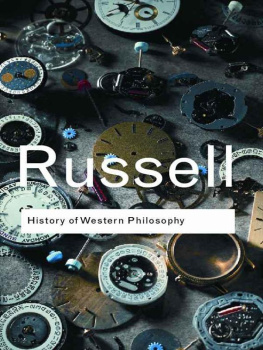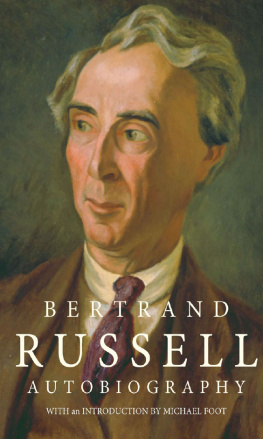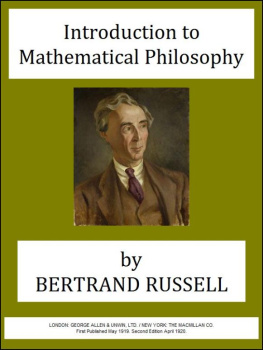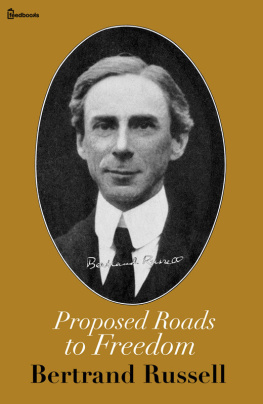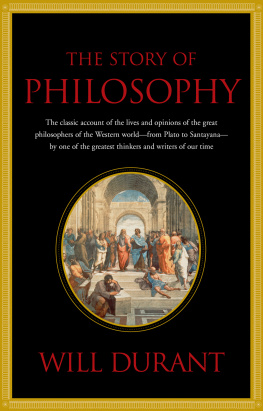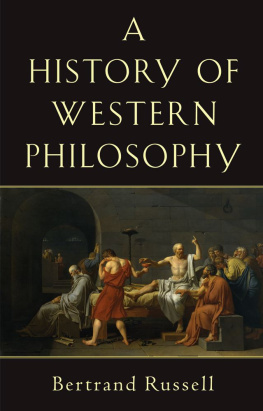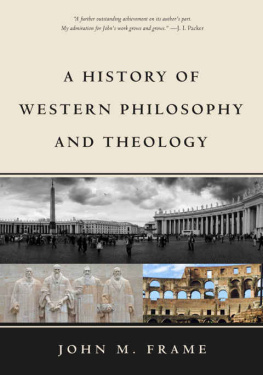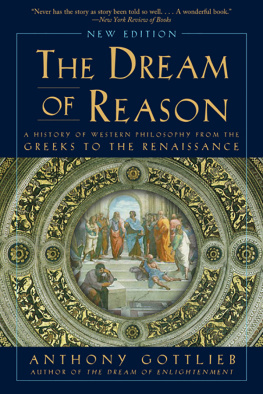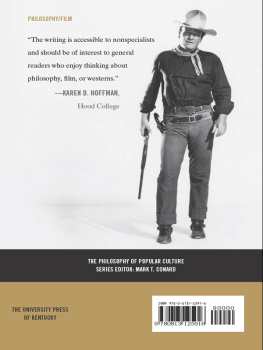History of Western Philosophy
'Remains to this day the most lucid introduction to European political thought.'
The Times
'A survey of Western philosophy in relation to its environment, of such sweep and acuteness, alive in every nerve a masterpiece of intellectual energy the Socrates of our time.'
A. L. Rowse
'This work possesses outstanding merits; it is throughout written in the beautiful and luminous prose of which Russell is a great master; the exposition and the argument are not merely classically clear but scrupulously honest.'
Isaiah Berlin
'Bertrand Russell's remarkable book is, so far as I am aware, the first attempt to present a history of Western philosophy in relation to its social and economic background. As such, and also as a brilliantly written expos of changing philosophical doctrines, it should be widely read.'
Sir Julian Huxley
'It is certain of a very wide audience, and is, in my opinion, just the kind of thing people ought to have to make them understand the past It may be one of the most valuable books of our time.'
G. M. Trevelyan
'Enough ideas on each pageshocking, expansive, heretical, profound, comicto broaden one's mind to bursting point.'
Good Book Guide
'Should never be out of print.'
The Evening Standard
'History of Western Philosophy remains unchallenged as the perfect introduction to its subject. Russell writes with the kind of verve, freshness and personal engagement that lesser spirits would never have permitted themselves. This boldness, together with the astonishing breadth of his general historical knowledge, allows him to put philosophers into their social and cultural context The result is exactly the kind of philosophy that most people would like to read, but which only Russell could possibly have written.'
Ray Monk

Routledge Classics contains the very best of Routledge publishing over the past century or so, books that have, by popular consent, become established as classics in their field. Drawing on a fantastic heritage of innovative writing published by Routledge and its associated imprints, this series makes available in attractive, affordable form some of the most important works of modern times.
For a complete list of titles visit
www.routledgeclassics.com
Bertrand Russell
History of Western Philosophy

London and New York
First published 1946
by George Allen & Unwin Ltd, London
First published in Routledge Classics 2004
by Routledge
11 New Fetter Lane, London EC4P 4EE
Routledge is an imprint of the Taylor & Francis Group
This edition published in the Taylor & Francis e-Library, 2004.
1996 The Bertrand Russell Peace Foundation Ltd
All rights reserved. No part of this book may be reprinted or reproduced or utilized in any form or by any electronic, mechanical, or other means, now known or hereafter invented, including photocopying and recording, or in any information storage or retrieval system, without permission in writing from the publishers.
British Library Cataloguing in Publication Data
A catalogue record for this book is available from the British Library
ISBN 0-203-48797-4 Master e-book ISBN
ISBN 0-203-54349-1 (MP PDA Format)
ISBN 0-415-32505-6 (Print Edition)
Copyright 2003/2004 . All rights reserved.
Reader's Guide
This ebook has been optimized for PDA.
Tables may have been presented to accommodate this Device's Limitations.
Table content may have been removed due to this Device's Limitations.
Image presentation is limited by this Device's Screen resolution.
All possible language characters have been included within the Font handling ability of this Device.
CONTENTS
PREFACE
A few words of apology and explanation are called for if this book is to escape even more severe censure than it doubtless deserves.
Apology is due to the specialists on various schools and individual philosophers. With the possible exception of Leibniz, every philosopher of whom I treat is better known to some others than to me. If, however, books covering a wide field are to be written at all, it is inevitable, since we are not immortal, that those who write such books should spend less time on any one part than can be spent by a man who concentrates on a single author or a brief period. Some, whose scholarly austerity is unbending, will conclude that books covering a wide field should not be written at all, or, if written, should consist of monographs by a multitude of authors. There is, however, something lost when many authors co-operate. If there is any unity in the movement of history, if there is any intimate relation between what goes before and what comes later, it is necessary, for setting this forth, that earlier and later periods should be synthesized in a single mind. The student of Rousseau may have difficulty in doing justice to his connection with the Sparta of Plato and Plutarch; the historian of Sparta may not be prophetically conscious of Hobbes and Fichte and Lenin. To bring out such relations is one of the purposes of this book, and it is a purpose which only a wide survey can fulfil.
There are many histories of philosophy, but none of them, so far as I know, has quite the purpose that I have set myself. Philosophers are both effects and causes: effects of their social circumstances and of the politics and institutions of their time; causes (if they are fortunate) of beliefs which mould the politics and institutions of later ages. In most histories of philosophy, each philosopher appears as in a vacuum; his opinions are set forth unrelated except, at most, to those of earlier philosophers. I have tried, on the contrary, to exhibit each philosopher, as far as truth permits, as an outcome of his milieu, a man in whom were crystallized and concentrated thoughts and feelings which, in a vague and diffused form, were common to the community of which he was a part.
This has required the insertion of certain chapters of purely social history. No one can understand the Stoics and Epicureans without some knowledge of the Hellenistic age, or the scholastics without a modicum of understanding of the growth of the Church from the fifth to the thirteenth centuries. I have therefore set forth briefly those parts of the main historical outlines that seemed to me to have had most influence on philosophical thought, and I have done this with most fullness where the history may be expected to be unfamiliar to some readersfor example, in regard to the early Middle Ages. But in these historical chapters I have rigidly excluded whatever seemed to have little or no bearing on contemporary or subsequent philosophy.
The problem of selection, in such a book as the present, is very difficult. Without detail, a book becomes jejune and uninteresting; with detail, it is in danger of becoming intolerably lengthy. I have sought a compromise, by treating only those philosophers who seem to me to have considerable importance, and mentioning, in connection with them, such details as, even if not of fundamental importance, have value on account of some illustrative or vivifying quality.
Philosophy, from the earliest times, has been not merely an affair of the schools, or of disputation between a handful of learned men. It has been an integral part of the life of the community, and as such I have tried to consider it. If there is any merit in this book, it is from this point of view that it is derived.
Next page
